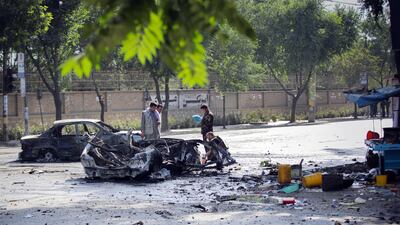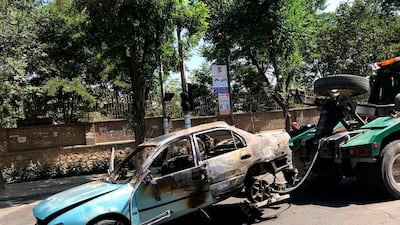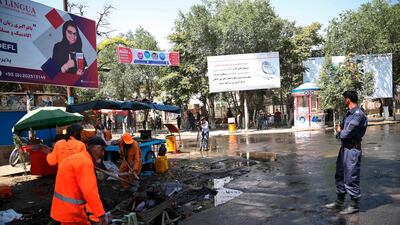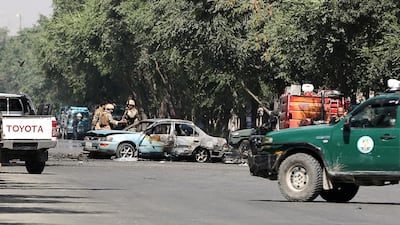Iran has hosted the political leader of Afghanistan's Taliban during the past week, offering Tehran's help as a mediator in talks between the insurgents and the Afghan government that have become stalled in Qatar.
Afghan government officials told The National last week that Iran was interfering in its internal affairs by recognising the terrorist group as a legitimate organisation.
"Any recognition of non-state actors by Iran isn't encouraging the state-to-state relations between our two countries", one official said.
In the past six months, peace talks have been increasingly jeopardised. Major Taliban offensives around the southern, government-held city of Kandahar and a wave of assassinations in Kabul and other cities targeting politicians and journalists, have led the Nato and the US to reconsider troop withdrawal.
The Pentagon recently said the Taliban was not respecting the terms of the agreement, signed last February.
While Iran has been a foe of the hardline Taliban movement for decades, it has openly met Taliban leaders for the past few years as the United States has started negotiating the exit of its troops from Afghanistan.
Washington has accused Iran in the past of providing covert aid to Taliban fighters against American forces, while the organisation has never cut ties with the Al Qaeda terrorist network, despite claiming that there is no link.
Iran's Foreign Minister Mohammad Javad Zarif met Taliban political chief Mullah Abdul Ghani Baradar in Tehran, and told him that Washington was not a "good mediator" for the conflict, Iran's Tasnim news agency reported on Sunday.
Echoing the US and European position on the conflict, Iran supported an inclusive Afghan government that would include all ethnic groups and sects, Mr Zarif was quoted as saying.
Taliban spokesman Mohammad Naeem said on Twitter that the meetings had taken place "in a good atmosphere".
"The situations in Afghanistan, Intra-Afghan negotiations, the full implementation of the Doha agreement and Afghanistan's and region's need [for] peace were discussed."
The US reached an agreement last year with the insurgents at negotiations in the Qatari capital to withdraw troops deployed in Afghanistan since 2001.
More recently, the Taliban and the Afghan government have been negotiating in Qatar to reach a peace deal. Those talks resumed this month after an almost month-long break, but negotiators and diplomats say there has since been little progress.
Reuters reported on Sunday that some Nato troops were likely to stay in Afghanistan beyond the deadline of May 2021 set last year, as the western alliance did not believe the withdrawal conditions had been met.
US President Joe Biden is expected to take a close look at the withdrawal agreement negotiated under his predecessor Donald Trump.








